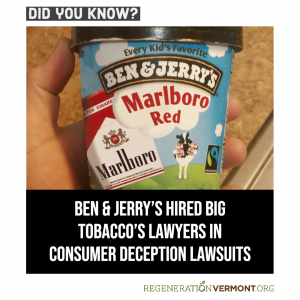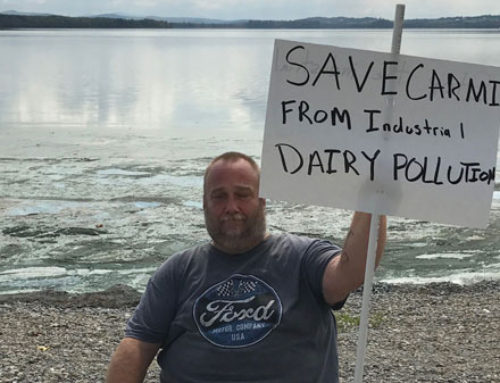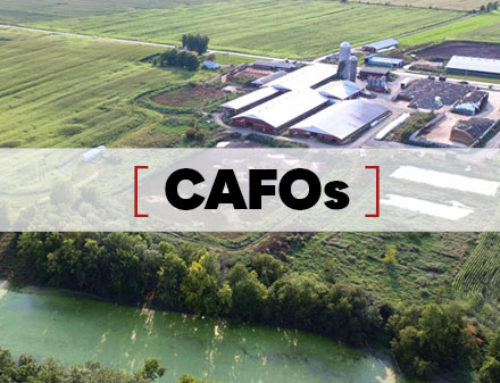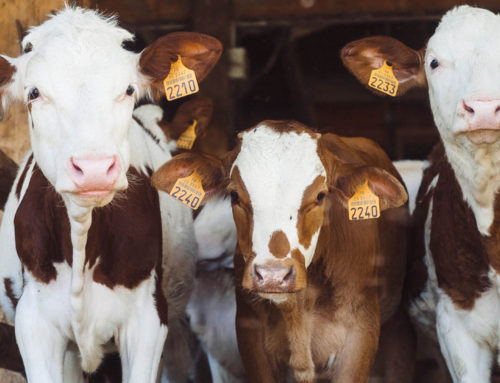Most people don’t know the law firm Shook, Hardy & Bacon. But if you’re a multinational corporation with a history of harming people, Shook Hardy is the go-to law shop. The firm has guided tobacco and chemical corporations through cancer denials and a mountain of lawsuits, most recently defending Bayer/Monsanto on glyphosate claims.

And – surprise, surprise — Shook Hardy also represented Ben & Jerry’s in recent consumer deception lawsuits that alleged its use of industrial farming techniques – including glyphosate – was contrary to its marketing claims and harmful to consumers and the environment. Engaging Shook Hardy, and becoming legal bedfellows with the likes of Phillip Morris and Monsanto, is an indication to many just how far Ben & Jerry’s has strayed from its marketed image.
The Kansas City-based Shook Hardy cut its teeth in corporate protectionism when it represented five of the top six top tobacco corporations in the U.S., viciously going after lung cancer patients and earning the ire of judges and juries, sickened by the levels to which they’d stoop to defend the indefensible.
The actions of the lawyers for Big Tobacco, including those from Shook Hardy, so angered a federal judge that she pointed to their “central role” in propagating the public deception campaign to deny the dangers of cigarette smoking.
“What a sad and disquieting chapter in the history of an honorable and often courageous profession,” wrote U.S. District Judge Gladys Kessler of Washington, D.C. in 2006, in her final judgment against Big Tobacco in the federal government’s landmark racketeering case against it.
But before that blistering takedown, Shook Hardy had a 50-year history of fending off lawsuits by lung cancer victims, beginning in the 1950s by one of its namesake lawyers, David Hardy. It was a record of success that got the attention of other industrial giants facing an onslaught of liability claims, particularly the pharmaceutical and chemical corporations.
Shook Hardy represented, for example, Eli Lilly when its DES, a hormone administered to pregnant women, was shown to cause cancer and other health problems in children. In addition to Lilly, Shook Hardy has represented dozens of pharmaceutical corporations in product liability cases, including Amgen, Bristol-Myers-Squibb, and GlaxoSmithKline.
So it wasn’t surprising to see Shook Hardy lawyers get hired recently by Bayer/Monsanto for help in its current legal miasma regarding glyphosate, aka “RoundUp.” Bayer, which recently acquired Monsanto and its chemical baggage, is facing billions of dollars of claims by cancer patients, some already awarded through jury trials, all citing the use of glyphosate as the cause of their cancer.
What is surprising, if you still believe the marketing hype of Ben & Jerry’s, is that this Unilever-owned dessert giant has retained Shook Hardy to fight off consumer deception and false advertising allegations, all involving the deep disconnect between the marketing and reality of its dairy sourcing.
While the marketing says it’s dairy production is all about “caring” for the planet, the reality is that Ben & Jerry’s uses the same, cheap commodity milk as the next corporate dairy buyer looking to maximize profits. And that means relying upon GMO feed, toxic pesticides, and the routine use of antibiotics. A vast majority of the cream purchased by Ben & Jerry’s is derived from CAFOs, concentrated animal feeding operations, in which cows remain in confinement – on concrete, not grass – for their entire lives.
And along came Shook Hardy to help Ben & Jerry’s get out of this deceptive jam.
In a motion to dismiss a consumer deception lawsuit filed by the Organic Consumers Association (OCA), lawyers for Shook Hardy argued that marketing claims about “happy cows” and “caring dairies” are only “beliefs and aspirations,” “not fact-based promises.”
It was a legal swing and a miss for Ben & Jerry’s, as the judge ruled in OCA’s favor – rejecting Shook Hardy’s motion to dismiss.
“The court concludes,” wrote Associate Judge Neal Kravitz, of the D.C. Superior Court, in his rejection of Shook Hardy’s legal arguments to dismiss the consumer deception case against Ben & Jerry’s, “that the complaint alleges facts sufficient to advance a plausible claim that consumers would be misled by Ben & Jerry’s labeling and marketing regarding the sourcing of its ingredients.”
Shortly after the court ruled in OCA’s favor, Ben & Jerry’s did make efforts to address the alleged deception. They admitted, for example, that the dairy it purchases is no different from any other “conventional” dairy sources. Moreover, Ben & Jerry’s agreed to stop its claim that its milk comes from “happy cows,” even removing the reference from all its packaging and marketing materials.
Moreover, the legal arguments made by Shook Hardy on Ben & Jerry’s behalf only seemed to prove OCA’s claims of deception. It argued, for example, “that no reasonable consumer” would believe “that none of the milk used in Ben & Jerry’s ice cream products comes from ordinary farms.”
Well, unless the marketing leads consumers to think otherwise.
Similarly, when it comes to its farms’ heavy reliance on glyphosate, the lawyers for Ben & Jerry’s argued that “no reasonable consumer would view its environmental advocacy as a guarantee that its products contain no glyphosate.”
Largely as a result of these admissions and the moves Ben & Jerry’s took to address the alleged deception, OCA recently dropped its lawsuit. But while forcing them to be honest about its use of dangerous farm practices – pesticides, GMOs, and antibiotics – may be a victory for more truthful marketing, the real work now turns to getting them to stop these practices. And that’s a battle that will take place in the marketplace, not the courts.
But Ben & Jerry’s hiring of the same legal bullies as Big Tobacco and Big Pharma, all in an effort to defend – not deny – its use of industrial agricultural techniques, should tell consumers everything they need to know about today’s Ben & Jerry’s.
— Michael Colby
[Disclaimer: The author was served a subpoena by Shook Hardy in April 2019, in relation to OCA’s lawsuit, seeking everything he’s ever written or communicated about its client, Ben & Jerry’s.]




